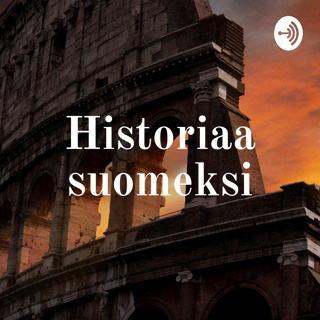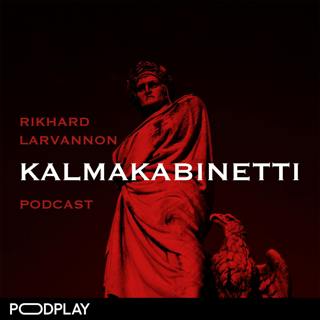
Bergson and Time
Melvyn Bragg and guests discuss the French philosopher Henri Bergson (1859-1941) and his ideas about human experience of time passing and how that differs from a scientific measurement of time, set out in his thesis on 'Time and Free Will' in 1889. He became famous in France and abroad for decades, rivalled only by Einstein and, in the years after the Dreyfus Affair, was the first ever Jewish member of the Académie Française. It's thought his work influenced Proust and Woolf, and the Cubists. He died in 1941 from a cold which, reputedly, he caught while queuing to register as a Jew, refusing the Vichy government's offer of exemption.WithKeith Ansell-Pearson Professor of Philosophy at the University of WarwickEmily Thomas Assistant Professor in Philosophy at Durham UniversityAnd Mark Sinclair Reader in Philosophy at the University of RoehamptonProducer: Simon Tillotson
9 Touko 201951min

The Gordon Riots
Melvyn Bragg and guests discuss the most destructive riots in London's history, which reached their peak on 7th June 1780 as troops fired on the crowd outside the Bank of England. The leader was Lord George Gordon, head of the Protestant Association, who objected to the relaxing of laws against Catholics. At first the protest outside Parliament was peaceful but, when Gordon's petition failed to persuade the Commons, rioting continued for days until the military started to shoot suspects in the street. It came as Britain was losing the war to hold on to colonies in North America.The image above shows a crowd setting fire to Newgate Prison and freeing prisoners by the authority of 'His Majesty, King Mob.'WithIan Haywood Professor of English at the University of RoehamptonCatriona Kennedy Senior Lecturer in Modern British and Irish History and Director of the Centre for Eighteenth Century Studies at the University of Yorkand Mark Knights Professor of History at the University of WarwickProducer: Simon Tillotson
2 Touko 201950min

Nero
Melvyn Bragg and guests discuss the life of Nero (37-68 AD) who became Emperor at the age of 16. At first he was largely praised for his generosity yet became known for his debauched lifestyle, with allegations he started the Fire of Rome, watching the flames as he played the lyre. Christians saw him as their persecutor, an anti-Christ, and the number of the Beast in the Book of Revelation was thought to indicate Nero. He had confidence in his own artistry, took up acting (which then had a very low status) and, as revolts in the empire grew, killed himself after the Senate condemned him to die as a slave, on a cross. With Maria Wyke Professor of Latin at University College LondonMatthew Nicholls Fellow and Senior Tutor at St John’s College, University of OxfordAnd Shushma Malik Lecturer in Classics at the University of RoehamptonProducer: Simon Tillotson
25 Huhti 201951min

A Midsummer Night's Dream
Melvyn Bragg and guests discuss one of Shakespeare's most popular works, written c1595 in the last years of Elizabeth I. It is a comedy of love and desire and their many complications as well as their simplicity, and a reflection on society's expectations and limits. It is also a quiet critique of Elizabeth and her vulnerability and on the politics of the time, and an exploration of the power of imagination.With Helen Hackett Professor of English Literature and Leverhulme Research Fellow at University College LondonTom Healy Professor of Renaissance Studies at the University of Sussexand Alison Findlay Professor of Renaissance Drama at Lancaster University and Chair of the British Shakespeare AssociationProducer: Simon Tillotson
18 Huhti 201954min

The Evolution of Teeth
Melvyn Bragg and guests discuss theories about the origins of teeth in vertebrates, and what we can learn from sharks in particular and their ancestors. Great white sharks can produce up to 100,000 teeth in their lifetimes. For humans, it is closer to a mere 50 and most of those have to last from childhood. Looking back half a billion years, though, the ancestors of sharks and humans had no teeth in their mouths at all, nor jaws. They were armoured fish, sucking in their food. The theory is that either their tooth-like scales began to appear in mouths as teeth, or some of their taste buds became harder. If we knew more about that, and why sharks can regenerate their teeth, then we might learn how humans could grow new teeth in later lives. With Gareth Fraser Assistant Professor in Biology at the University of FloridaZerina Johanson Merit Researcher in the Department of Earth Sciences at the Natural History Museumand Philip Donoghue Professor of Palaeobiology at the University of BristolProducer: Simon Tillotson
11 Huhti 201949min

The Great Irish Famine
Melvyn Bragg and guests discuss why the potato crop failures in the 1840s had such a catastrophic impact in Ireland. It is estimated that one million people died from disease or starvation after the blight and another two million left the country within the decade. There had been famines before, but not on this scale. What was it about the laws, attitudes and responses that made this one so devastating?The image above is from The Illustrated London News, Dec. 29, 1849, showing a scalp or shelter, "a hole, surrounded by pools, and three sides of the scalp were dripping with water, which ran in small streams over the floor and out by the entrance. The poor inhabitants said they would be thankful if the landlord would leave them there, and the Almighty would spare their lives. Its principal tenant is Margaret Vaughan."With Cormac O'Grada Professor Emeritus in the School of Economics at University College DublinNiamh Gallagher University Lecturer in Modern British and Irish History at the University of CambridgeAnd Enda Delaney Professor of Modern History and School Director of Research at the University of EdinburghProducer: Simon Tillotson
4 Huhti 201957min

The Danelaw
Melvyn Bragg and guests discuss the effective partition of England in the 880s after a century of Viking raids, invasions and settlements. Alfred of Wessex, the surviving Anglo-Saxon king and Guthrum, a Danish ruler, had fought each other to a stalemate and came to terms, with Guthrum controlling the land to the east (once he had agreed to convert to Christianity). The key strategic advantage the invaders had was the Viking ships which were far superior and enabled them to raid from the sea and up rivers very rapidly. Their Great Army had arrived in the 870s, conquering the kingdom of Northumbria and occupying York. They defeated the king of Mercia and seized part of his land. They killed the Anglo-Saxon king of East Anglia and gained control of his territory. It was only when a smaller force failed to defeat Wessex that the Danelaw came into being, leaving a lasting impact on the people and customs of that area.With Judith Jesch Professor of Viking Studies at the University of NottinghamJohn Hines Professor of Archaeology at Cardiff UniversityAndJane Kershaw ERC Principal Investigator in Archaeology at the University of OxfordProducer: Simon Tillotson
28 Maalis 201950min

Gerard Manley Hopkins
Melvyn Bragg and guests discuss the life and works of Hopkins (1844-89), a Jesuit priest who at times burned his poems and at others insisted they should not be published. His main themes are how he, nature and God relate to each other. His friend Robert Bridges preserved Hopkins' poetry and, once printed in 1918, works such as The Windhover, Pied Beauty and As Kingfishers Catch Fire were celebrated for their inventiveness and he was seen as a major poet, perhaps the greatest of the Victorian age. WithCatherine Phillips R J Owens Fellow in English at Downing College, University of CambridgeJane Wright Senior Lecturer in English Literature at the University of Bristoland Martin Dubois Assistant Professor in Nineteenth Century Literature at Durham UniversityProducer: Simon Tillotson
21 Maalis 201947min






















